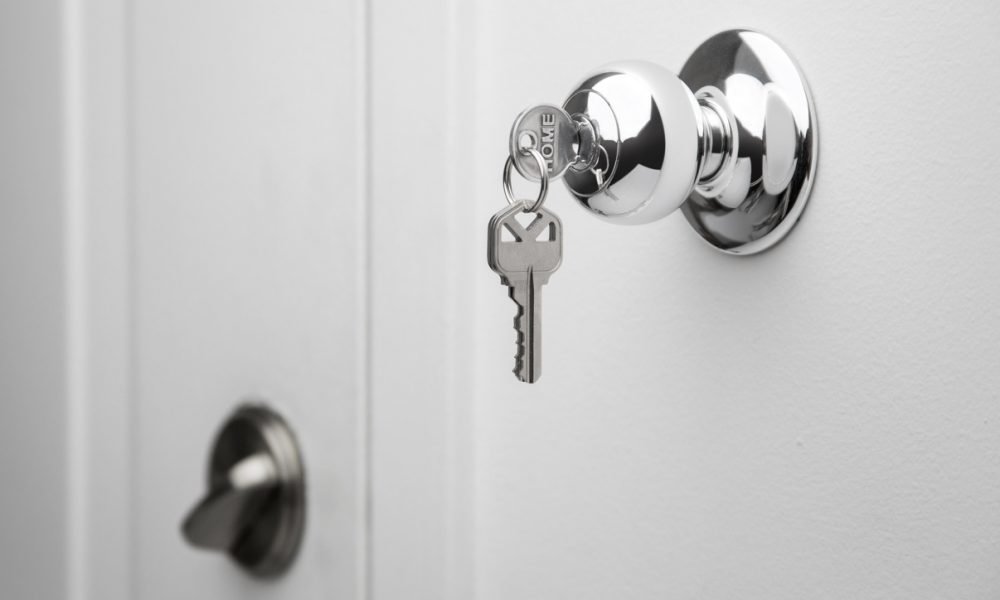
How to Protect Yourself from An Eviction Notice

One of the scariest moments in the life of every single tenant is the day when your landlord shows up with an eviction notice. However, that does not need to be the final word. There are ways to stop the eviction and defend yourself against the notice.
An eviction is not as simple a process as TV shows would like you to believe. Your landlord wants to use the process to terminate the lease and remove any tenants from the premises but they can’t just do that out of blue. What they have to do first is file an eviction lawsuit. The lawsuit is going to be decided in front of the court in the county where the property is located. Once the lawsuit has been filed, the landlord can serve the eviction notice.
An eviction notice is not a fun ride for either a tenant or for the landlord that filed an eviction lawsuit. It can potentially lead to a prolonged battle in court, fights outside of it and cost a lot of money and effort.
This is what you can do outside of court, as well as on the court that can help you defend against the notice.
1.Before the notice: Document everything

When you move into the apartment, take photographs of everything that is not in perfect order so that they cannot claim that you caused damage you had nothing to do with. If you anticipate some future problems, you should also keep a diary of any conversation you have with the landlord and save proof of any dealings. Every penny you give him should be documented and every repair or damage should be photographed or recorded. Also, if you are notifying the landlord about the damages you should send it to the post office, but via certified receipt mail. This way, they will have to confirm that they have received the notice with their signature which can serve as proof and stop them from untruthfully claiming you caused damage or failed to notify the landlord about it.
Every penny you give him should be documented and every repair or damage should be photographed or recorded. Also, if you are notifying the landlord about the damages you should send it to the post office, but via certified receipt mail. This way, they will have to confirm that they have received the notice with their signature which can serve as proof and stop them from untruthfully claiming you caused damage or failed to notify the landlord about it.
2.Pay the rent
If the grounds for eviction the landlord is demanding is the fact that you didn’t pay your rent, the solution is simple. You need to pay the rent and any late fees that apply. You need to do this before any eviction action happens. Do this as soon as you receive the eviction notice, and, if the landlord accepts the payment you will have a defense if it goes to court.
Now, there are two scenarios possible. In the first one, it was really about the rent and the landlord will stop asking you to leave once you pay. Alternatively, he just wants you out, and the fact that you are late with rent is just an excuse. If the former one is the case, this means that you will have solid arguments for the upcoming fight.
3.Correct other violations

If you are being evicted because you violated terms of the lease agreement, you might have the opportunity to remedy the situation. Most of the agreements have a planned period during which you can correct violations. If you have corrected the violation after receiving the eviction notice, and the landlord proceeds with taking you to court, you will, once more, have a strong argument as to why you should stay in the apartment. And, as always, make sure you keep proof that you are not breaching the agreement anymore.
You should remember that sometimes the landlord doesn’t actually want you out, they just want you to respect the agreement.
4.File an answer
You need to defend yourself against the eviction. Once you are served with a copy of the lawsuit, you will have 5 or 15 days to reply to it depending on the fact whether you were served in person or via post, respectively. For this step, and onwards, you should consider hiring an attorney, in fact, we would say that it is rather important that you do. Remember, do not just answer to the landlord. If the landlord failed to properly serve you, or his claim is not strong enough, you can file a motion to quash the suit.
For this step, and onwards, you should consider hiring an attorney. In fact, we would say that it is rather important that you do. Remember, do not just answer to the landlord. If the landlord failed to properly serve you, or his claim is not strong enough, you can file a motion to quash the suit.
5.Go to court and defend yourself
Usually, after filing the answer, the court will schedule a hearing which you must show up at. Bring all the evidence you have collected including checks, photos of the property, and anything that can serve as evidence that you should not be evicted. Remember, if you win this lawsuit, they cannot evict you. Once more, hiring a lawyer can mean a lot in these situations.
Remember now, if you win this lawsuit, they cannot evict you. Once more, hiring a lawyer can mean a lot in these situations especially if your landlord is a lawyer himself or highly familiar with legal issues.
More in Legal Advice
-
What Is Asylum & How Does It Work?
At its core, asylum is a protection granted to foreign nationals in a country because they have suffered persecution or have...
November 26, 2023 -
6 Reasons Why Sentencing Is Any Judge’s Toughest Assignment
When you picture a judge, you might imagine a stern figure in black robes, gavel in hand, delivering verdicts with unwavering...
November 14, 2023 -
Carrie Underwood Sued for NBC Sunday Night Football’s “Game On”
It is almost ritualistic. As the weekend winds down and Sunday evening approaches, millions across America gear up for a night...
November 12, 2023 -
Why Lawyers’ Productivity Has Increased in Modern Times
Remember the old days when your image of a lawyer might have been drawn straight out of an episode of “Matlock”...
November 5, 2023 -
Paying Down Debts Using Debt Relief Tactics
Debt is like that lingering headache that never seems to go away, no matter how much aspirin you pop. But there...
October 29, 2023 -
Pro Se: Your Right to Represent Yourself WITHOUT an Attorney
The legal system is complex and so, more often than not, people hire a professional attorney to navigate the legal system....
October 21, 2023 -
The Craziest, Most Expensive Hollywood Divorces of All Time
Hollywood is the land of glitz, glamour, and romance – until it is not. Over the years, we have seen our...
October 13, 2023 -
How Was Life as a Lawyer in Ancient Rome?
The Late Roman Republic was a period chock-full of political drama, rampant corruption, and the rise and fall of powerful figures....
October 8, 2023 -
7 Critical Things to Know Before Hiring an Elder Law Attorney
Hiring an attorney can feel like a daunting task. When the need pertains to elder law, emotions run high, often making...
October 1, 2023














